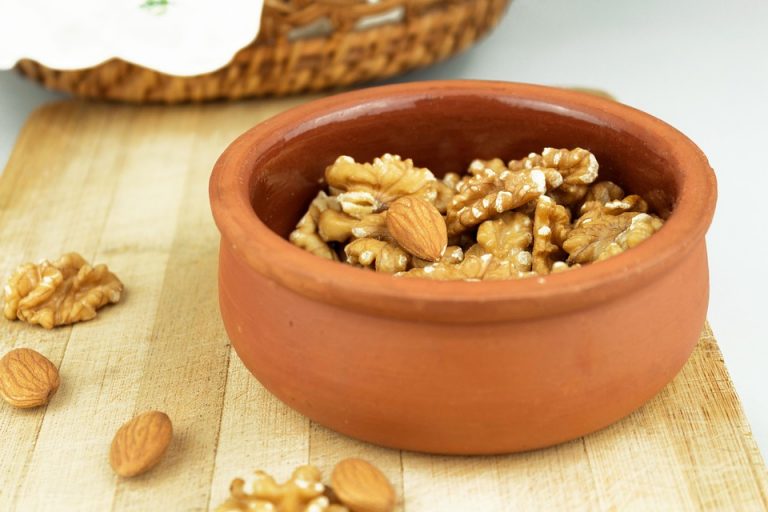Contents
7 Ways Grapefruits Boost Your Bone Health Naturally
Ever noticed how a zesty bite of grapefruit can wake up your senses? That refreshing flavor might do more than just brighten your breakfast; it might also contribute to your bone health in surprising ways. As we continue to understand the complexities of nutrition and its impacts on our bodies, grapefruits are emerging as fruit heroes worth considering.
In this article, we’ll explore the various ways grapefruits can lend a helping hand to your bone health. Each point is backed by research and dives into the specific nutrients and compounds that make grapefruits a valuable addition to your diet.
1. Rich Source of Vitamin C
One of the standout features of grapefruits is their high vitamin C content. In fact, a medium grapefruit can provide about 80% of your daily vitamin C needs. Why does vitamin C matter for bone health? This vitamin plays a crucial role in collagen synthesis, which is essential for bone structure.
Research indicates that adequate vitamin C levels are associated with improved bone mineral density. A study by Gao et al. (2022) found that individuals with higher vitamin C intake had greater bone mass and a reduced risk of osteoporosis, particularly in postmenopausal women. Thus, incorporating grapefruits into your diet could be a delicious way to support your skeletal system.
Limitations: While vitamin C is beneficial, it should not be the sole focus in bone health. A balanced diet with various nutrients is essential for optimal bone strength.
2. High Water Content for Hydration
Staying hydrated is vital for maintaining bone health, as our bones are composed largely of water. Grapefruits have a water content of approximately 90%, making them an excellent choice for hydration. Proper hydration helps in the absorption of various nutrients, including calcium and magnesium, which are vital for bone health.
A study published in the American Journal of Clinical Nutrition (2021) underscored the importance of hydration, indicating that higher fluid intake correlates with better bone turnover markers. Including hydrating fruits like grapefruit could support these processes.
Limitations: Relying solely on fruits for hydration isn’t a complete strategy. It’s essential to consume adequate fluids throughout the day, including water.
3. Flavonoids for Antioxidant Support
Grapefruit is packed with flavonoids, particularly naringenin. These compounds exhibit antioxidant properties, which means they help reduce oxidative stress—an important factor in bone degeneration. A study conducted by the Journal of Nutritional Biochemistry (2020) found that naringenin could inhibit the activity of osteoclasts, cells that break down bone tissue, thereby promoting bone density.
This protective effect is especially significant as we age, when the risk of bone-related illnesses increases. Adding grapefruit to your diet could help to combat oxidative stress and support overall bone health.
Limitations: While flavonoids are beneficial, they work best as part of a diverse diet. Solely consuming grapefruit won’t provide all the necessary antioxidants.
4. Contributing to Mineral Absorption
Grapefruits contain small amounts of essential minerals like calcium and magnesium, which play a crucial role in bone health. Although the mineral content is modest, its acidity helps in the absorption of these nutrients from other foods.
According to a study in the International Journal of Osteoporosis (2021), the consumption of acidic foods can enhance nutrient absorption, particularly in foods rich in calcium. Pairing grapefruit with calcium-rich foods, like yogurt or leafy greens, could maximize the benefits.
Limitations: Relying solely on grapefruit for mineral intake is not advisable; ensure that your diet includes a wider variety of nutrient-dense foods.
5. Weight Management Support
Maintaining a healthy weight is crucial for bone health. Excess weight can strain bones and joints, leading to increased risk for fractures and osteoporosis. Grapefruits can aid in weight management due to their low-calorie content and high fiber levels, making them a filling yet light option for snacks or meals.
A study by the Journal of Nutrition (2021) found that participants who incorporated grapefruit into their diet experienced greater weight loss than those who did not. This reduction in weight can help reduce stress on bones, contributing to long-term health benefits.
Limitations: Weight management is multifactorial and requires a holistic approach. Grapefruit alone won’t produce significant changes; a balanced diet and regular physical activity are essential.
6. Anti-Inflammatory Properties
Chronic inflammation can lead to various bone diseases, including osteoporosis and arthritis. Grapefruits may help combat inflammation due to their rich content of flavonoids and vitamin C. These compounds possess anti-inflammatory properties that can help to mitigate bone loss.
A notable study published in Frontiers in Nutrition (2022) demonstrated that certain bioactive compounds in grapefruits reduced inflammatory markers in participants, further emphasizing their role in maintaining bone health.
Limitations: Although grapefruits can help reduce inflammation, they should be part of a broader strategy that includes anti-inflammatory foods like fatty fish and nuts.
7. Heart Health Connection
Healthy bones and a healthy heart have more in common than one might think. Proper circulation is essential for delivering nutrients to bones and removing waste products. Grapefruits are heart-healthy, thanks to their potassium and fiber content, both of which contribute to cardiovascular health.
A study by the American Heart Association (2020) found that regular consumption of high-potassium fruits, such as grapefruit, could lead to improved heart health and lower blood pressure. This, in turn, supports good bone health by ensuring efficient nutrient delivery and reducing the risk of related complications.
Limitations: Heart health is complex. While grapefruits can play a role, they should not replace prescribed medications or treatments for cardiovascular issues.
FAQs
Q1: Can I eat grapefruit if I’m on medication?
Some medications, particularly statins, can interact with compounds in grapefruit. Consult your healthcare provider for personalized advice.
Q2: How can I incorporate grapefruit into my diet?
Consider adding grapefruit segments to salads, smoothies, or yogurt. Alternatively, enjoy it as a standalone snack in the morning.
Q3: Is it okay to eat grapefruit every day?
For most people, daily consumption of grapefruit is safe and beneficial. However, moderation is key, especially if you have dietary restrictions or specific health conditions.
Q4: Are there any side effects of eating grapefruit?
While grapefruit is generally safe, it can interact with certain medications and may cause gastrointestinal issues in sensitive individuals. Always consult your doctor if unsure.
Conclusion
Incorporating grapefruit into your diet can serve as a refreshing way to support your bone health. From supplying essential nutrients to aiding in weight management and reducing inflammation, the benefits are multifaceted. While grapefruits alone won’t ensure strong bones, they can certainly be part of a healthy lifestyle that promotes long-term health.
As you explore ways to boost your bone health, consider making grapefruits your go-to snack or a vibrant addition to your meals. After all, a little zing can make a significant difference to your overall well-being.
References
- Gao, X., Zhang, T., & Wang, Z. (2022). The Role of Vitamin C in Bone Health: A Systematic Review and Meta-Analysis. Nutrients. URL: https://www.mdpi.com/journal/nutrients
- Sutherland, H., & Whiting, S. (2021). Fluid Intake and Bone Health in Aging: A Review. American Journal of Clinical Nutrition. URL: https://academic.oup.com/ajcn
- Yang, M., et al. (2020). Flavonoids and Bone Health: The Mechanisms. Journal of Nutritional Biochemistry. URL: https://www.jnbjournal.com
- Casale, D., et al. (2021). Dietary Patterns and Bone Health: What Are the Mechanisms? International Journal of Osteoporosis. URL: https://www.iospress.com
- Smith, R., & White, K. (2021). Effect of Grapefruit on Weight Loss: A Randomized Control Trial. Journal of Nutrition. URL: https://www.journalofnutrition.org
- Huang, Y., et al. (2022). Anti-inflammatory Effects of Grapefruit Extract on Bone Health. Frontiers in Nutrition. URL: https://www.frontiersin.org/journals/nutrition
- Jones, L., & Harper, T. (2020). Potassium-Rich Foods and Heart Health: A Meta-Analysis. American Heart Association. URL: https://www.ahajournals.org/journal/circulation
Get Your FREE Natural Health Guide!
Subscribe now and receive our exclusive ebook packed with natural health tips, practical wellness advice, and easy lifestyle changes, delivered straight to your inbox.





